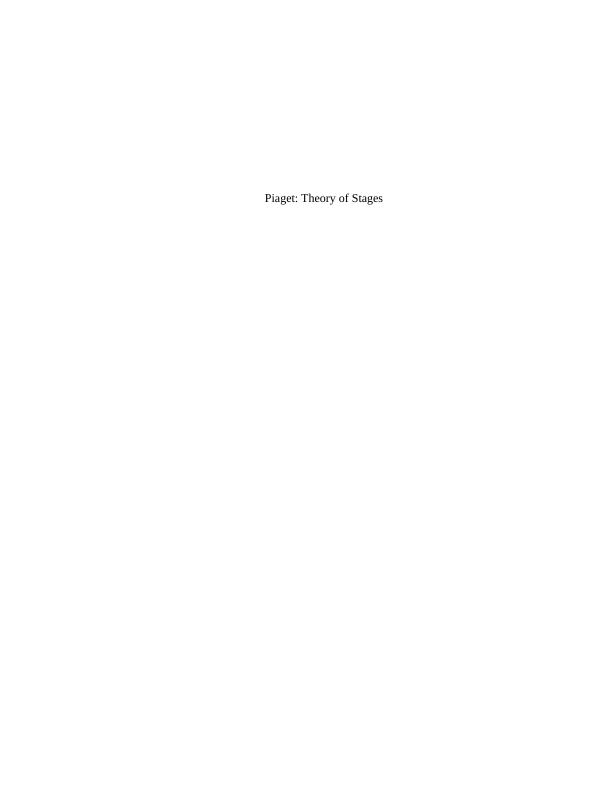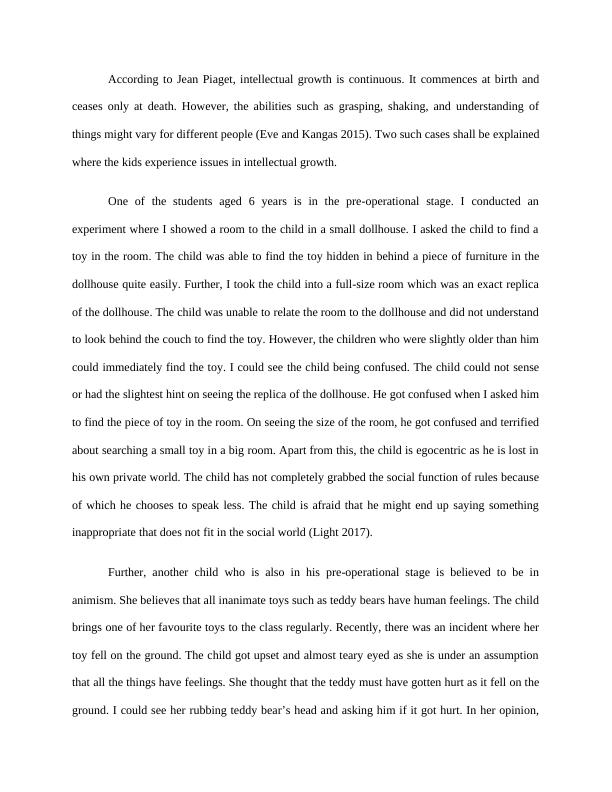Piaget's Theory of Stages: Intellectual Growth and Shortcomings in Children
The Attainment of Invariants and Reversible Operations in the Development of Thinking by Jean Piaget is a research article published in the Fall 1963 issue of Social Research. The article explores the concept of invariants and reversible operations in the development of thinking.
4 Pages671 Words278 Views
Added on 2023-06-13
About This Document
This article discusses Jean Piaget's Theory of Stages and how it explains intellectual growth in children. It presents two cases of children in pre-operational stage and their shortcomings. One child is unable to relate a small dollhouse to a full-size room, while the other believes that inanimate toys have human feelings. The article emphasizes that not all children are equal and teachers can work on their shortcomings by knowing their exact symptoms.
Piaget's Theory of Stages: Intellectual Growth and Shortcomings in Children
The Attainment of Invariants and Reversible Operations in the Development of Thinking by Jean Piaget is a research article published in the Fall 1963 issue of Social Research. The article explores the concept of invariants and reversible operations in the development of thinking.
Added on 2023-06-13
ShareRelated Documents
End of preview
Want to access all the pages? Upload your documents or become a member.
Assignment on Baby Day Report
|10
|1705
|234
Anecdotal Records of Children's Activities - Indoor and Outdoor
|10
|1850
|425


